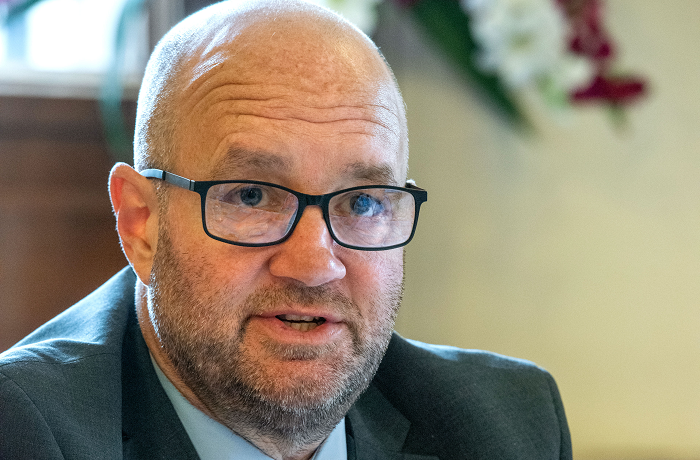[SPONSORED CONTENT]
Greater complexity at smaller scale schemes is bringing advisers and insurers closer together to meet client needs, says UnitedHealthcare Global group sales director John Kaye.
The evolution of global mobility populations and patterns is further driving the sector’s development, Kaye (pictured) explains in this Health & Protection post-House of Lords roundtable Q&A.
What are the main trends you’re seeing coming out of the large corporate market?
There is a certain empathy from advisers who are working with large corporates with some of the challenges that we’re dealing with and are making it more difficult to provide the solutions they need for their clients.
I’ve seen in the last couple of years there’s an appreciation that it’s less about sticking out a set of requirements and getting a quote back, and a lot more of a deep dive with them at the consulting stage as to what solutions they need.
That’s not just $10m schemes but even $1m schemes, those with 75 employees, or even smaller ones of between 50 and 75 employees.
There’s no such thing as vanilla in our world anymore and there was a lot of similar language spoken between us and the consultants working at that level.
What is the biggest driver of complexity in providing those solutions for advisers and their clients?
The challenge starts a bit further back as a lot of clients still want a certain level of consistency, even if it’s not total equity, across different locations.
However, there are often a multitude of competing forces within the client, perhaps regional stakeholders have different needs and do not want to compromise to fit a global model.
They may want a regional model which could be driven by local market dynamics and that regionalisation is also powered to a large degree by regulation and compliance, but there are still clients who want that consistency.
We spoke a lot about how clients have never been in greater need of advice for building and designing their benefits across borders because the solutions are becoming much more complex.
There was a lot of agreement and alignment that this market is not smaller it’s just in lots of different pockets, forms and personas now, driven by clients looking at other methods of managing their business rather than two, three, or four-year assignments.
How are mobility patterns and employee management affecting the sector?
While employers of record (EORs) have been around quite a long time, the use of them has increased sharply.
Technology has enabled companies to look at a more globally dispersed workforce, and EORs have become a much more common solution of being able to stand up an entity in a certain location.
Of course this added another group of countries to achieve benefit consistency in.
As an industry we’re catching-up to greater EOR use and looking for solutions to that, still with all the challenges around compliance, reach and access to care.
That’s where the adaptability of IPMI works, but it’s not a perfect solution, there are still challenges.
IPMI products were built more around the populations we have been used to serving, so we’re revisiting those products in this new environment, reviewing how we price them, how we view the risk and how we deliver service, which is not an overnight process.
It’s not actually what healthcare plan they have, that could be a few months down the line, it’s that employee needs looking after from day one.
they need a visa and they need a payroll and they need they could need a visa if they’re if they’re an expat. But they need a payroll. They need to have a means of actually hiring that person. They need some tax advice.
There was a desire for more modular and cheaper products from the panel. Is that how UnitedHealthcare Global is trying to evolve?
Certain elements will reduce the price, but they’re generally not the ones people want to take off a plan.
What we must adapt to is the different types of behaviour; the claiming behaviour and understanding the personas we’re dealing with.
We get quotes for 50 person schemes in 20 different countries and the most might be seven or eight people in one location.
In some countries they’re providing IPMI but there is also some state provided or subsidised or mandated cover – so how do we look at claiming behaviour for one client in 20 locations?
The claiming behaviours and even benefit needs within that one client could be very different.
How do we respond to that when it comes to service even before we think about price?
We’re rooted in that very intensive service journey and we found a lot of those more dispersed companies have realised that as their businesses get more complex, they need the security of 24-hour help lines, the language support, the networks we offer.
DOWNLOAD THE FULL HOUSE OF LORDS ROUNDTABLE SUPPLEMENT HERE
